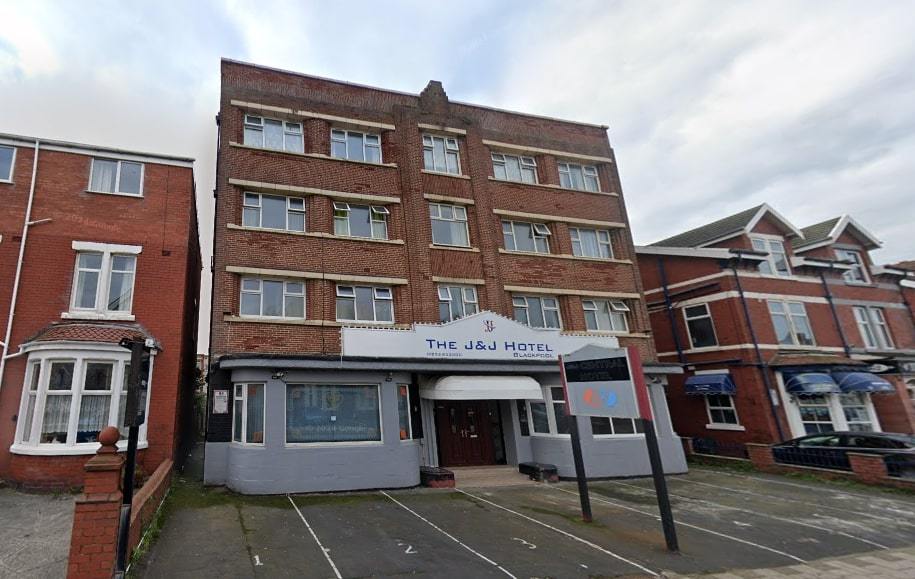Blackpool in the spotlight as Labour pledges to launch war on potholes
Blackpool Council’s Project Amber scheme uses an advanced imagery system that takes high-definition pictures of roads to detect potholes
Blackpool’s reputation for fixing potholes has been put in the spotlight as Transport Secretary Louise Haigh chose the resort to launch a national campaign to improve the nation’s roads.
Ms Haigh even hopped aboard a roller as she visited Deepdale Road at Mereside to see first-hand how the council is carrying out cutting-edge repairs to the carriageway.
During the General Election campaign, Labour pledged to fix an additional one million potholes across England in each year of the next Parliament.
Blackpool Council’s Project Amber scheme uses an advanced imagery system that takes high-definition pictures of roads to detect potholes and compile data on areas most in need of repair.
As well as saving money on the highways budget and reducing road closures due to roadworks, the council has cut its compensation bill for pothole-related payouts since using the technology.
In previous years it was paying up to £1.5m a year to settle claims, but last year it paid out £36,976.
Ms Haigh said: “I’m here in Blackpool looking at their innovative technology for road surfacing and preventing and fixing potholes.
“I know from travelling all over the country how important fixing potholes is to people. That in lots of places it is the number one priority, so as Transport secretary I am keen that we get on top of that as soon as possible.”
She added: “The work they have been doing in Blackpool is genuinely cutting edge. They are doing work to map the state of the roads so they know where funding should be prioritised and where those schemes need to be done.
“And they have got this work that is far less carbon-intensive and actually recycles the asphalt and the tarmac that is in the road, which is much more environmentally sustainable and is much more financially sustainable as well.
“So there are lots of lessons to be learnt from what they are doing here in Blackpool.”
The minister said there had been years of under-investment in the country’s roads and despite funding challenges “we will be making sure we fulfil that manifesto promise” to repair an additional million potholes a year.
This included by using technology which could help prevent potholes forming in the first place.
Coun Paula Burdess, cabinet member for community safety, street scene and neighbourhoods on Blackpool Council, said Project Amber had made repairing the roads more efficient.
She said: “The new system is efficient and we are working in collaboration with a lot of different contractors so we are providing a really good solution that is cleaner, greener and more cost-effective.
“We also don’t have to keep going back to roads to repair them as what we do once will last for two to five years. Whereas the older techniques, work had to be repeated three times a year.”
Coun Burdess said Project Amber also meant less disruption to residents from roadworks as repairs were often carried out at night or at quieter times.
Ian Large, head of service at the council for highways and traffic, said: “It is about intervening earlier in the lifespan of a road where we can, with a smaller and less disruptive treatment.
“In doing so you prolong the life of the road rather than letting it deteriorate to the point where you have to start again and dig it all up.”
By contrast to Blackpool’s success in fixing potholes, neighbouring Lancashire authority Blackburn with Darwen has said it has only enough funding to resurface the equivalent of 1.2 per cent or just 6km of roads each year.
It has recently launched a campaign to educate residents on what constitutes a pothole and explain more about the lack of funding available.
Coun Quesir Mahmood, executive member for growth and development, said: “On footways, a pothole needs to be 25mm deep, which is the same as a two pence coin. On a road, a pothole needs to be the same depth as a golf ball, 40mm, to be repaired.”
There's lots of ways you can support our work as The Blackpool Lead, from a one-off donation, to a monthly payment through to shopping for The Lead branded merchandise too. It all helps support our independent, in-depth, journalism.
The Blackpool Lead is now on Substack.
Become a Member, and get our most groundbreaking content first. Become a Founder, and join the newsroom’s internal conversation - meet the writers, the editors and more.





